
Victor Wooten picks 10 essential bass albums
In 2005, Victor Wooten paid tribute to his bass heroes – dozens of them, in fact – on a song called Bass Tribute. Jaco Pastorius, Stanley Clarke, Larry Graham, Marcus Miller, Bootsy Collins, James Jamerson – all were name-checked, along with a host of others. So you'd think that a list-making enthusiast like Wooten would have no problem coming up with 10 essential bass albums, right?
“I have to admit, it's not so easy," Wooten says, chuckling. "There are so many albums that influenced me and helped shape my style on the bass. I don't really have a 'favorite' anything, whether it's food or music. My favorites keep changing."
The five-time Grammy winner, who has been called "the Michael Jordan of the bass," started gigging at the age of five, performing alongside his four brothers in The Wooten Brothers Band. Records were passed around and shared like salt at the family dinner table. But Wooten cites a live album by the late soul vocalist Donny Hathaway, played for him by one of his aunts, as a true life-changer.
"Hearing Willie Weeks on bass on Donny Hathaway Live made me think about things in a new way," he says. "The song Voices Inside (Everything Is Everything) has the first bass solo that I ever sat down and figured out. It's just exceptional. Ever since I heard that, I listened more and more to what bass players were doing on records."
On the following pages, Wooten, known to do the impossible on a fretboard, surprises even himself and runs down what he considers to be 10 essential bass albums (listed alphabetically by artist). "Paring it all down is hard," he says. "I know I'm leaving people out, but I can definitely call these records my core. They're albums that I can recommend to people who want to learn something new on the bass, or even if they just want to listen to some great music, that's cool, too."
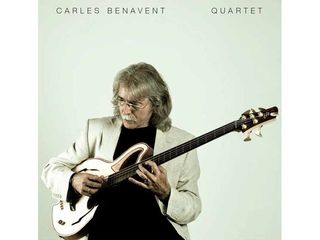
Carles Benavent - Quartet (2009)
“Carles is pretty unbelievable. I like him because of his unmistakable feel. This is an album that no one will know, but they should definitely check it out. Carles is very different in that he gets us totally out of America, if that makes any sense.
“He has a flamenco/Latin kind of flavor. He plays with a pick, but he still has a feel that is almost like finger and thumb players. He does it his own way.
“I got a copy of this record from Carles himself, but I discovered him by listening to Paco de Lucia, the flamenco guitarist. Hearing it was like a breath of fresh air – somebody doing something different. It’s bass from another culture, so it takes you somewhere new.”
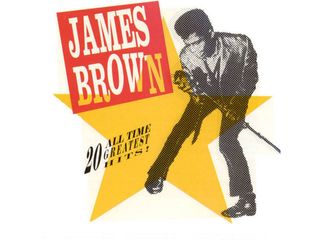
James Brown - 20 All-Time Greatest Hits! (1991)
“Sex Machine is one of my favorites. It’s Booty Collins doing what he does best, and you can really hear the difference between him and the bass player that James Brown had before. Bootsy and his brother, [guitarist] Phelps “Catfish” Collins, changed James’ sound. They made it more upbeat; the music jumped with the bass. Young Bootsy and his slightly older brother perked things up.
“Hot Pants, Super Bad – it’s all classic Bootsy. He puts a swing beat to the songs. Everything on this record is great, but it’s the life in the bass that brings them to another level, and that’s Bootsy.”
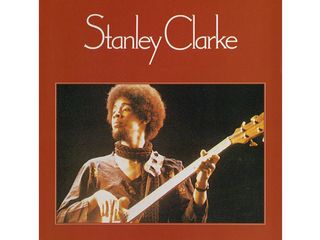
Stanley Clarke - Stanley Clarke (1974)
“I was fortunate enough to get this album when it was just that – an actual album. I like it for both Stanley’s electric and his upright playing. This is before another great album of his called School Days. You’ve got Vulcan Princess and Lopsy Lu on it, but there’s also Spanish Phases For Strings & Bass – all great stuff.
“It’s a very varied record, with a lot of funk, but he gets into some other areas, as well. The way he plays with Tony Williams is amazing. They're an incredible combination. A lot of heavy guys are on it – Jan Hammer, Bill Conners, Airto Moreira. It’s a very powerful statement in what fusion is to me, blending jazz and rock in Stanley's own unique way.”

Donny Hathaway - Live (1972)
“An aunt of mine played this for me and one of brothers, and it was one of those records that you remember your whole life. The song Voices Inside (Everything Is Everything) has a bass solo by Willie Weeks, and in my opinion, it’s the way a solo should be built: It starts out simple, but it grows and changes. He begins with an octave thing, like a I-V-VIII, and then he develops his ideas in a non-flashy way that holds you throughout.
“Many bass players go at a solo to demonstrate all of their tricks and the things they’ve been practicing, but this bass solo is all about the song. It’s as if Willie knows what the song is about, and he’s just telling his own version of it.
“I’ve played this song for people over the years, and it’s great to see them get it. Sometimes I think I should just play it with no explanation beforehand. I bet it would still get an amazing reaction.”
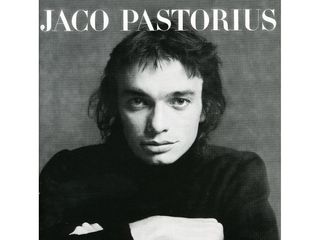
Jaco Pastorius - Jaco Pastorius (1976)
“This kind of brought the finesse to fretless bass playing. Jaco did it in a way that really turned people’s attention to the bass in a different way from Stanley Clarke. Stanley brought the fire – he was playing fast with a lot of attack and brightness – but Jaco came in with a new sound. He was running lines like horn players. His solos sounded very orchestrated. He had a touch that was all his own.
“And what a writer! To me, that was his forte, even more so than his playing. There were other guys who could compose, but Jaco brought a sense of songcraft to the instrument in a way that nobody had done before. So you had that, and then you had his bass playing, which really complemented his overall approach.”

Oscar Peterson - The Trio (1961)
“Along with Ron Carter, Ray Brown is one of the greatest upright players. Ray brought such character and musicality to the bass. He made a lot of solo albums where he was the leader, but the funny thing was, the records really weren’t about the bass. He didn’t make music to show how well he could play. He was just doing what he should do as a bass player.
“On that note, I have to single out the stuff he did with Oscar Peterson, especially in a trio context. Ray has a feel that I would call perfect. He doesn’t call attention to himself, and in a band that small, that’s saying something.
“He makes me want to play the upright bass.This is going to sound weird, but when I hear him play, I say to myself, ‘I can do that.’ He doesn’t make what he’s doing sound so out of my reach. He doesn’t go way outside with weird notes – he stays inside. Any time he hits a grace note, you can tell what it is. Everything he plays, you hear the pitch. He’s the perfect upright bass player. There’s nothing left unsaid, undone. It’s just beautiful.”

Paul Simon - Graceland (1986)
“This is probably not the best representation of the style, but it’s the only album I know of that shows off a South African bass feel. All of a sudden, here was a totally brand-new sound. I mean, it was new to us here in America, but obviously, to the people in South Africa, it had been around for a long time.
“A lot of South African musicians were upset when people started calling it ‘the Paul Simon sound.’ I’m not criticizing him, because I know that he was incorporating the approach into his music, but yeah, there were musicians who were not pleased.
“But in terms of the bass, it was like when Stanley Clarke or Jaco or Larry Graham came along with their new sounds. This record made bass players listen closely to the rhythms a little differently. It was the first in a barrage of African bass players coming out. We've got guys like Richard Bona nowadays, people who play funk and jazz but with their action on it, and that makes it totally new.”
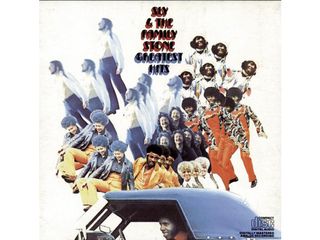
Sly & The Family Stone - Greatest Hit (1970)
“It’s hard to pick just one album, so I’m going with Greatest Hits because all of this stuff is so good. Larry Graham really brought such life to the music, and more importantly, he wrote hooks, the kind you usually associate with the guitar or keyboards.
“Thank You (Falettinme Be Mice Elf Agin) has a classic bassline for us thumb players. Everybody who was learning how to play in the late ‘60s and early ‘70s was influenced by this. But Larry could go minimal in a song like Everyday People. He rides the whole song out on eighth notes. Not only that, but he’s playing one note throughout – and with so much feel, too! [Laughs] That's pretty special.
“For me, a guy like Larry Graham was one of the musicians you had to look at and admire. He put some flash in, but he’d lay back and play the tune."
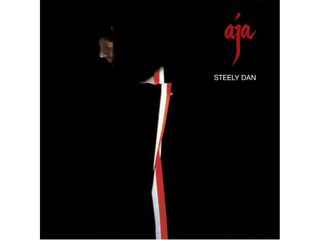
Steely Dan - Aja (1977)
“I like what Chuck Rainey did on the bass with Steely Dan. Peg is a really jumpin’ track. For me, I really recognize the importance of what his basslines did for the song. His choices are very smart, and he put real motion to the arrangement.
“I do a teaching camp with Chuck, and I got to hear some of the stories about how he worked with those guys. He told me how he was using his thumb on the bass during a session, and they said, ‘No, no, we don’t like that.’ Well, he turned his back to them and did the exact same thing, and they were like, ‘That’s great. We love that!’ But it was the same part, played the same way.
“To me, this is a classic record with a classic sound. Everything fits. It’s a good lesson in playing music where the bass doesn’t have to be flashy – it just has to be right.”
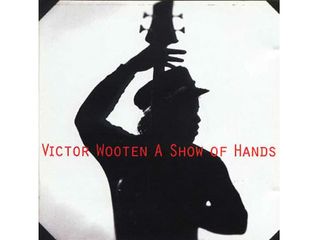
Victor Wooten - A Show Of Hands (1996)
“I feel as though I shouldn’t put my own record on the list, but it is something that really shows the bass as a complete instrument. So I’m going to do it, but it's not from an egotistical point of view, but because of all the feedback I’ve gotten from people over the years.
“Bass players have a tendency to focus on the instrument for technical reasons, and in a way, the album pointed them down that road, which is what I didn’t want at all; my idea for the record was to make a musical statement where the songs grooved. Yes, it took technique to play, but I wanted the music – all the music – to be at the forefront.”

Joe is a freelance journalist who has, over the past few decades, interviewed hundreds of guitarists for Guitar World, Guitar Player, MusicRadar and Classic Rock. He is also a former editor of Guitar World, contributing writer for Guitar Aficionado and VP of A&R for Island Records. He’s an enthusiastic guitarist, but he’s nowhere near the likes of the people he interviews. Surprisingly, his skills are more suited to the drums. If you need a drummer for your Beatles tribute band, look him up.
New book Dust & Grooves Vol.2 tells the tall tale of the scam records that could make collectors a fortune
![Session guitar ace Tim Pierce wears a ballcap and poses with a Powers Electric guitar [left]; a young Jon Bon Jovi rocks Super Rock 84 on Bon Jovi's first tour of Japan. His shirt is open. His hair is big. And he has a red Fender Stratocaster slung low by his hip.](https://vanilla.futurecdn.net/cyclingnews/media/img/missing-image.svg)
“Jon had the laser-focus about becoming a rock star at age 19... he knew how to negotiate the business”: Session ace Tim Pierce on his blazing solo on Bon Jovi’s Runaway – and the hunger that propelled Jon Bon Jovi to superstardom
New book Dust & Grooves Vol.2 tells the tall tale of the scam records that could make collectors a fortune
![Session guitar ace Tim Pierce wears a ballcap and poses with a Powers Electric guitar [left]; a young Jon Bon Jovi rocks Super Rock 84 on Bon Jovi's first tour of Japan. His shirt is open. His hair is big. And he has a red Fender Stratocaster slung low by his hip.](https://vanilla.futurecdn.net/cyclingnews/media/img/missing-image.svg)
“Jon had the laser-focus about becoming a rock star at age 19... he knew how to negotiate the business”: Session ace Tim Pierce on his blazing solo on Bon Jovi’s Runaway – and the hunger that propelled Jon Bon Jovi to superstardom
Most Popular






